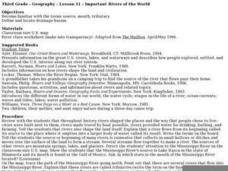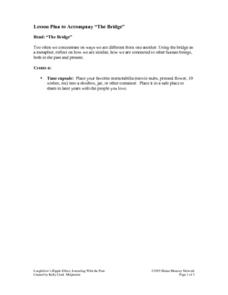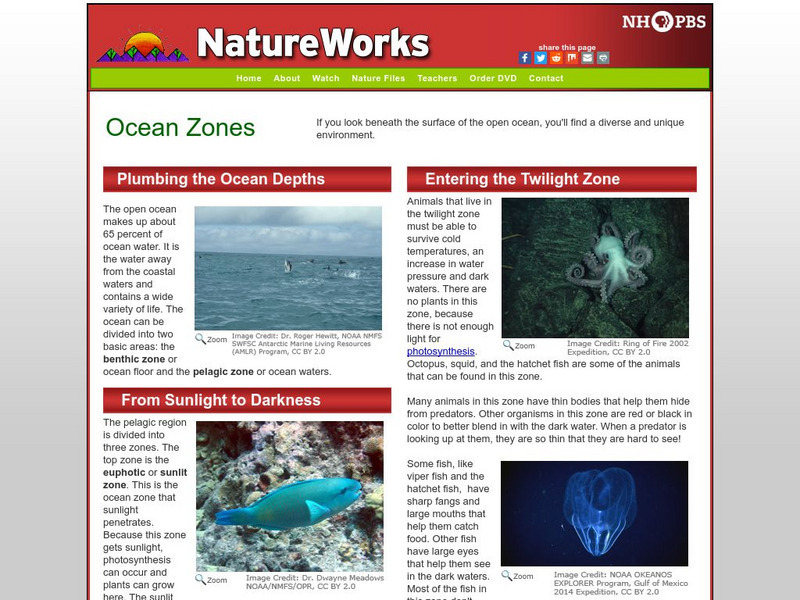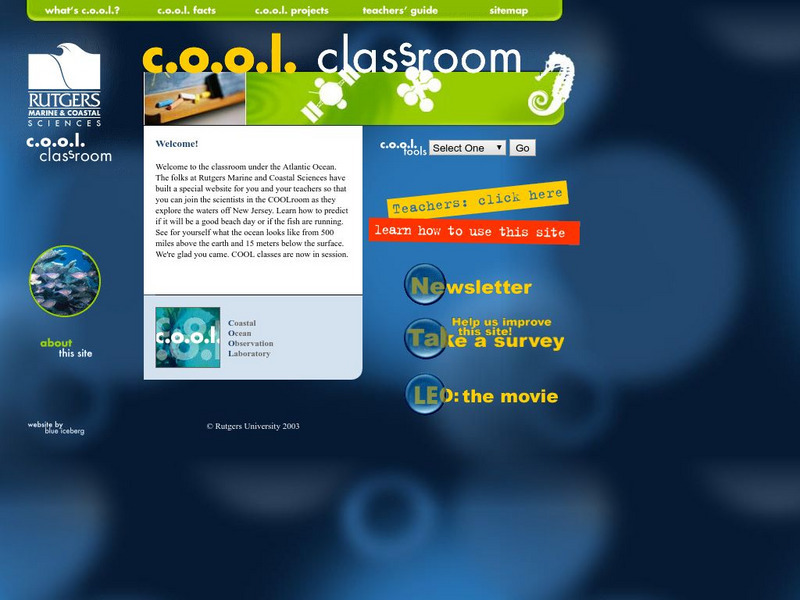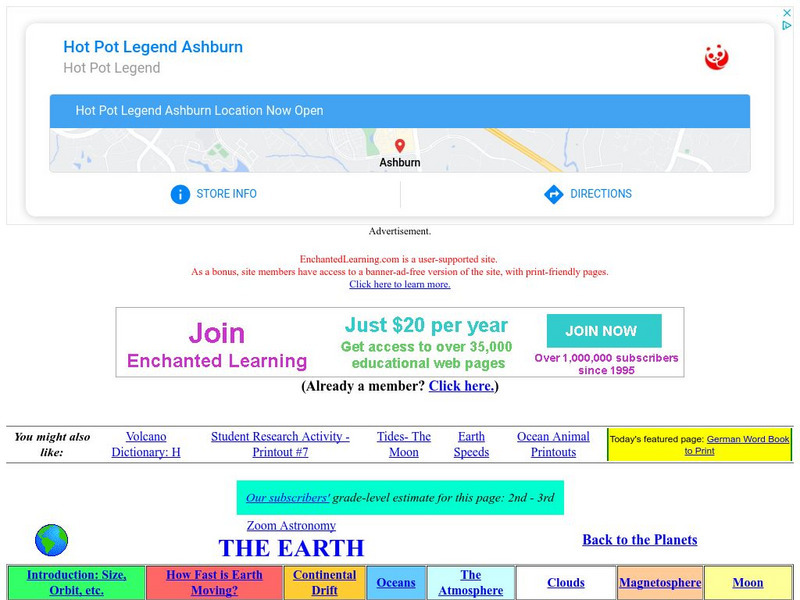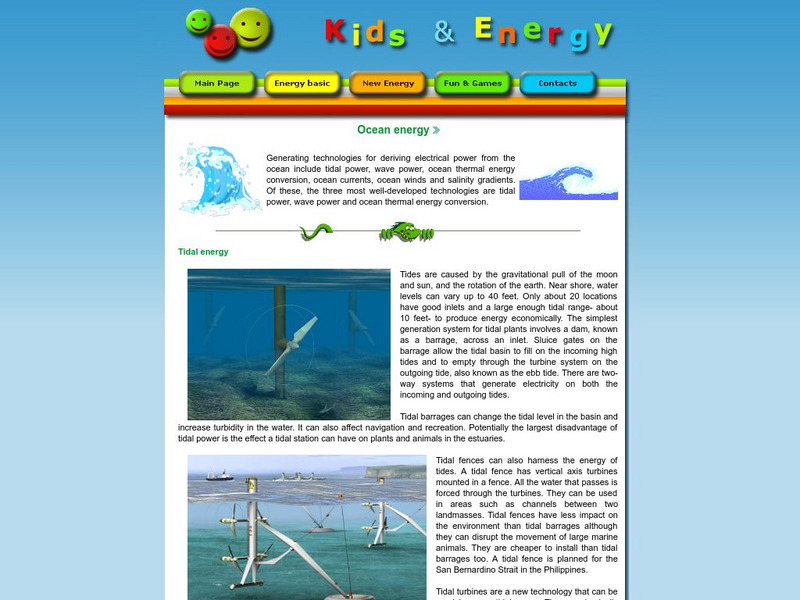Curated OER
Water, Water Everywhere, and Nary a Drop to Drink!
Students sing the continent song and locate oceans between the continents on a map. They read "They Earth is Mostly Ocean" and copy notes into their journals. They watch a demonstration of water and saltwater evaporated to see what is...
Curated OER
Reading Comprehension: Oceans
For this ocean comprehension worksheet, students read a short passage, then complete 4 short answer questions about oceans. Worksheet contains a link to additional activities.
Curated OER
What Are The Properties of Sea Water?
Ninth graders conduct research on the subject of sea water. They use a variety of resources to obtain information. There are helpful resource links listed in the lesson plan. In conjunction with the research students make inquiry of the...
Curated OER
Science Review for Grade 5 (5.2)
In this science review for grade 5 (5.2) learning exercise, 5th graders answer 25 earth science questions in a standardized test format, including reading maps and diagrams.
Curated OER
Where's the Beach?
Students use beach profile data to analyze how erosion and sediment transport changed seashore slopes. In this geology lesson, students plot the data provided and analyze erosion patterns. They also assess coastal erosion management...
Curated OER
PASSWORD VOCABULARY REVIEW
Students write definitions for vocabulary words used in a unit in any subject area. They use the words to play a game.
Curated OER
Important Rivers of the World
Third graders become familiar with names of the different parts of a river, define and locate drainage basins, locate six of the continents and explore the major rivers on each one, conduct research on a river of their choice.
Curated OER
"The Bridge"
Pupils read poem, "The Bridge," by Henry Wadsworth Longfellow, discuss how they are connected to other human beings, both past and present, and create time capsules including their favorite memorabilia.
NOAA
Noaa: National Weather Service: Jetstream: The Ocean
Online school for weather presents a complete guide to the ocean and its effect on our weather such as El Nino, hurricanes, floods, and droughts. Explores layers of the ocean, sea water, waves, tides, rip currents, and more. A review...
Texas A&M University
Ocean World: Bringing the Ocean to the Classroom
Online resource for students and teachers to see information on icebergs, fisheries, coral reefs, waves, currents and more. Provides teachers with learning activities. Has its own ask-an-expert site (Ask Dr. Bob), and provides real-time...
PBS
Nh Pbs: Nature Works: Ocean Zones
Discover more about the underocean environment at this site that surveys animals, environmental factors such as light and temperature, currents, animals, plants, and the like.
PBS
Pbs Learning Media: Coastal Geological Processes
This interactive resource adapted from the National Park Service describes the many forces that affect shorelines, including tides, weathering, erosion, and deposition. Includes background reading handout and discussion questions.
Other
Rutgers Marine & Coastal Sciences: Cool Classroom
Students and teachers can explore the work of marine scientists and observe the ocean from their computers. Learn about Rutgers Coastal Ocean Observation Laboratory, discover why oceanography is important, and see what life is like in...
Enchanted Learning
Enchanted Learning: Zoom School: Oceans
Find out why the oceans are blue and what causes waves by clicking here. There is a table of information about the four oceans as well as interesting facts on waves, salinity, and tides.
San Diego State University
San Diego State University: Researching Research
This comprehensive unit site from the San Diego State University is geared towards seventh grade math and science students. "Students will chose a research project currently in progress and research it using traditional techniques, the...
Energy for Sustainable Development
Kids and Energy: Ocean Energy
Generating technologies for deriving electrical power from the ocean include tidal power, wave power, ocean thermal energy conversion, ocean currents, ocean winds and salinity gradients. Of these, the three most well-developed...
Georgia Department of Education
Ga Virtual Learning: Moving Water
Students learn about surface currents, wave characteristics, and the forces that cause tides in the World Ocean.
Cosmo Learning
Cosmo Learning: Blue Planet: Introduction to Oceanography
A collection of video lectures from an introduction to oceanography course taught at the University of California, Los Angeles. The course gives a general introduction to the processes and history of Earth's global oceanic system in...
The Franklin Institute
The Franklin Institute: Treasures at Sea
Learn about ocean systems and habitats. Lots of reading, writing, games, and interactive activities. Colorful and fun.








